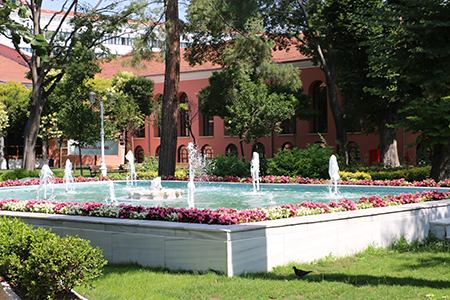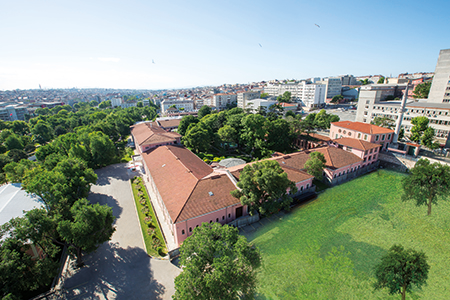

17th The International Symposium on Health Informatics and Bioinformatics
The International Symposium on Health Informatics and Bioinformatics (HIBIT), first held in 2005, aims to bring together academics, researchers, and practitioners who work in these popular and fulfilling areas and create the much-needed synergy among medical, biological, and information technology sectors. HIBIT is one of the few conferences emphasizing such synergy. HIBIT provides a forum for discussion, exploration, and development of theoretical and practical aspects of health informatics and bioinformatics and a chance to network between students, academia, and other stakeholders.
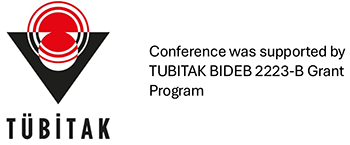

Abstract Submission
Submission deadline: 15 November 2024
Author notification: 30 November 2024
Registration
Registration Deadline (Early): 7 December 2024
Registration Deadline (Late + On-site): 20 December 2024
Conference
Conference: 18-20 December 2024
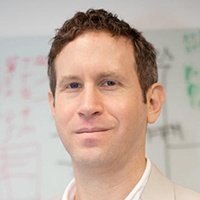
Yuval Itan, Mount Sinai
Yuval Itan is a computational biology PI in the field of human genetics and genomics. His research focus is the development and application of in silico tools to facilitate the discovery of disease-causing mutations and genes in high-throughput genomic and transcriptomic data at the individual, cohort, and population levels. His main subject of interest throughout his academic career has been interdisciplinary studies of human genotype phenotype relationships at various scales, which he pursues by combining his biology and computer science skills. Biological data are accumulating exponentially, making it crucial for cutting-edge computer science disciplines to provide a solid framework for experimental biologists to best decipher large-scale human genetic problems. During his B.Sc. in computational biology (BIU, Israel), he studied experimental biology and computer science, and the dual linkage between the fields. During his master’s degree studies (UCL, UK) at the CoMPLEX (Centre for Mathematics and Physics in the Life Sciences and Experimental Biology) program of Modelling Biological Complexity he was further exposed to various interdisciplinary studies and methodologies in biology, and he chose to focus on human genetics. He continued his Ph.D. studies in the CoMPLEX program, where, under the supervision of Prof. Mark G. Thomas, he investigated two major subjects in human population and evolutionary genetics: (1) investigating, modeling, and simulating the origins and evolution of human lactase persistence genetics, and (2) identifying human-specific gene duplication events, their dates and their function, comparing the human and chimpanzee reference genomes. His next project was under the supervision of Dr. Neil Bradman where I simulated the genetic differentiation between two human populations derived from one ancestral population. He then joined Prof. Jean-Laurent Casanova’s Laboratory of Human Genetics of Infectious Diseases at The Rockefeller University as a postdoc. He was interested in computationally resolving the “needle in a haystack” problem of identifying disease-causing genes and mutations in next generation sequencing data of patients suffering from genetic disorders. He developed new tools whenever the available ones were insufficient. He has first developed an approach called “the human gene connectome” (HGC), where using a shortest distance algorithm (as in GPS navigation systems), he identified the set of biologically plausible distances, routes, and degrees of separation between all pairs of human genes, applied for prioritizing disease-causing gene variants in high throughput data. He then developed the gene damage index (GDI), where he estimated the accumulated mutational damage for protein coding human genes. Finally, he developed the mutation significance cutoff (MSC) where he calculated for each human gene a benign/damaging threshold of significance to indicate the impact of a variant in the context of the gene in which it is harbored. The main research topics of his laboratory at the Institute for Personalized Medicine at Icahn School of Medicine at Mount Sinai are identifying disease-causing mutations, genes and pathways by case-control analyses in next generation sequencing (NGS) and genotype array data of patients, and developing new methods for detecting the functional consequences of human genetic variants, in particular: (1) identifying population-specific disease causing mutations, genes and pathways in next generation sequencing data; (2) classifying gain-of-function and loss-of-function mutations using genomic, transcriptomic and proteomic data; and (3) disease-aware classification of pathogenic mutations by machine learning and deep neural network approaches. He is currently mentoring 11 individuals: two postdocs, one PhD student, two MS students, one data analyst, two trainees and three high school students. He has previously mentored two postdocs, one MD-PhD student, two PhD students, three bioinformaticians, three high school students, and five trainees. PhD committee member of three students.
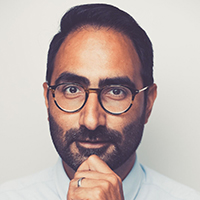
Altuna Akalin, Berlin Institute for Medical Systems Biology (BIMSB), Max Delbrück Center for Molecular Medicine
Altuna Akalin is an accomplished researcher in the field of bioinformatics and data science., currently serving as the Head of the Bioinformatics and Omics Data Science Platform at the Berlin Institute of Medical Systems Biology, Max Delbrück Center. Dr. Akalin's scientific contributions are particularly noted in the analysis of sequencing data, including the development and maintenance of one of the most widely used bisulfite sequencing analysis packages, as well as a genomic data visualization toolkit. His work has culminated in a published book on genomic data analysis with CRC, showcasing his commitment to advancing the field.
In recent years, Dr. Akalin has focused on integrating deep learning into genomics and single-cell analysis, along with innovative applications in drug target identification. He has been at the forefront of using large language models for text and omics data integration, leading to the creation of platforms such as Onconaut.ai for targeted cancer therapies and 2ndOpin.io for disease diagnostics. These cutting-edge tools are currently being validated by medical professionals and are continuously evolving to support healthcare decision-making.
Driven by a long-term vision to optimize the application of data science in both academic and clinical settings, Dr. Akalin's current research emphasizes developing decision support systems for diagnostics and biomarker discovery using patient molecular signatures. His team is pioneering the use of semi-autonomous AI agents to streamline data analysis, enhancing the speed and efficiency of deriving actionable insights in healthcare.
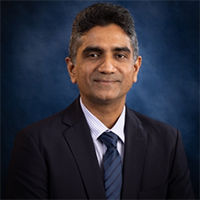
Asif M. Khan, University of Doha for Science and Technology (UDST)
Mohammad Asif KHAN is a Professor and Associate Dean at the College of Computing and IT, University of Doha for Science and Technology, Qatar. He earned his PhD from the National University of Singapore before joining Johns Hopkins University (JHU), USA, as a faculty member. He later became part of a pioneering JHU team to establish a collaboration with Perdana University (PU) in Malaysia, where he served as the Founding Dean of the School of Data Sciences and Founding Director of the Centre for Bioinformatics. Dr. Khan was also a visiting Professor at Bezmialem Vakif University, Istanbul, through Turkey’s “International Fellowship for Outstanding Researchers.” He is currently the President of the Asia-Pacific Bioinformatics Network (APBioNET) and the Chairperson of the Executive Board of the Global Organisation for Bioinformatics Learning, Education, and Training (GOBLET). His research focuses on biological data warehousing and bioinformatics applications in virus study, immune responses, vaccines, drug design, and disease biomarkers.
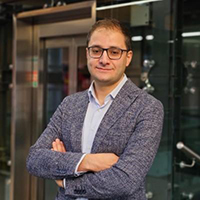
Seref Gül, Bezmialem University
Dr. Şeref Gül received his bachelor's degree in Chemistry from Boğaziçi University in 2008. He completed his master's degrees in the field of computational biophysics at both Boğaziçi University and Michigan State University in 2013. He obtained his PhD in 2019 from Koç University's Department of Chemical and Biological Engineering. He continued his work at the same university as a postdoctoral researcher. From 2021 to 2023, he served as an Assistant Professor in the Department of Biotechnology at Istanbul University’s Department of Biology. Since May 2023, he has been continuing his research with his team at Bezmialem Vakıf University's Life Sciences and Biotechnology Institute, working on TÜBİTAK and TÜSEB-supported projects. His research focuses on understanding the circadian clock mechanism in mammals and discovering innovative drug candidate molecules against diseases related to the circadian clock. To date, he has published numerous works in national and international journals and books, and holds international patents. He also serves as a reviewer for national and international scientific journals.
In 2023, he was awarded the Outstanding Young Scientist Award (GEBİP) by the Turkish Academy of Sciences (TÜBA) in the field of molecular biology. In the same year, he received the Sedat Simavi Science Award.
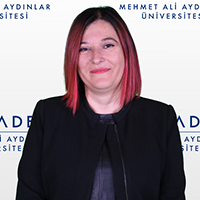
Günseli Bayram Akçapınar, Acıbadem University
Prof. Günseli Bayram Akçapınar is a distinguished scientist specializing at the crossroads of protein engineering, computational biology, and biotechnology. She holds an M.Sc. and Ph.D. in Biological Sciences and Bioengineering from Sabancı University, and a B.Sc. in Molecular Biology and Genetics from Boğaziçi University.
During her postdoctoral research at the Vienna University of Technology (TU Wien) in Austria, Prof. Bayram Akçapınar focused on hydrophobin research. She investigated the molecular diversity, structure-function, and applications of hydrophobins—small, surface-active proteins produced by fungi. Her work contributed to understanding hydrophobin function and how hydrophobins can be engineered and utilized in industrial applications, such as enzyme immobilization.
Currently, Prof. Bayram Akçapınar holds the position of Principal Investigator in the Department of Medical Biotechnology at the Institute of Health Sciences of the Acıbadem University in Istanbul, Turkey where she also serves as the Director. In 2024, she joined the Editorial Board of Fungal Biology Reviews.
Her research is highly interdisciplinary, bridging biotechnology with bioinformatics and computational biology. Prof. Akçapınar applies computational methods to redesign proteins, enhancing their stability and functionality for industrial and medical applications. She focuses on gaining a mechanistic understanding of the protein structure-function paradigm through molecular simulations.
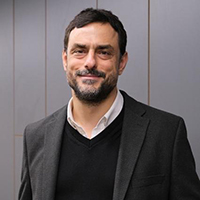
Kaya Bilguvar, Acıbadem University
Dr. Kaya Bilguvar holds a Ph.D. in Medical Biology and Genetics from Marmara University, obtained in 2022, and completed a postdoctoral fellowship at Yale University in 2007, following his M.D. from Marmara University in 2000. His primary research interests encompass neuroendocrine regulation, metabolic disorders such as obesity and diabetes, and the impact of metabolic signals on higher brain functions and neurodegeneration. Combining classical neurobiological techniques with endocrine and genetic methods, Dr. Bilguvar aims to comprehensively understand biological events at the organismal level and translate basic biomedical research into personalized prevention and precision therapies. Currently, Dr. Bilguvar is a professor at Acıbadem University School of Medicine in the Medical Genetics department, where he specializes in identifying the genetic bases of human diseases that affect the structure and function of the nervous system. His research employs multi-omic approaches and patient-derived 2D and 3D induced neuronal systems, with a particular focus on cerebral cortical malformations, schizophrenia, early-onset neurodegenerative syndromes, and migraine. Additionally, Dr. Bilguvar is dedicated to developing high-throughput omics methods for the early detection and profiling of brain tumors.
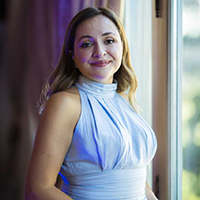
Gülşah Merve Kılınç, Hacettepe University
Dr. Gülşah Merve Kılınç is an assistant professor at the Department of Bioinformatics at Hacettepe University. She graduated from the Department of Biology at Hacettepe University in 2010. Upon receiving her PhD at the Department of Molecular Biology and Genetics at Bilkent University under a full merit scholarship in 2014, she joined Prof. Mehmet Somel’s research group to study ancient DNA. She continued her postdoctoral research in Stockholm, Sweden, in 1000 Ancient Genomes Project in Prof. Anders Götherström’s lab. For over the last ten years, her research is focused on ancient genomic investigation of past human populations from distinct parts of the world expanding from Anatolia to Siberia, from Eurasian Steppes to Scandinavia. She uses bioinformatics approaches to answer population genetics questions on palaeogenomics data. Her research is supported by various national and international grants and published in prestigeous journals including Cell, Science Advances, and Current Biology. Recently, she has been awarded by UNESCO-L’oreal Women in Science program 2024 for her research.
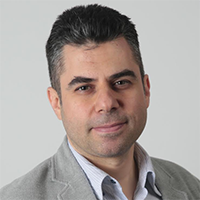
Mehmet Baysan, Istanbul Technical University
After obtaining his B.S. in Computer Science from Bilkent University in 2003, Dr. Baysan completed his M.S. and Ph.D. in Computer Science at The University of Texas at Dallas in 2005 and 2008, respectively. In 2010, Dr. Baysan switched his research focus to the area of computational biology as a post-doctoral fellow at the Neuro-Oncology Branch of the National Cancer Institute (NCI) of the NIH, USA. After his fellowship, he moved to NYU Cancer Institute and later to Weill Cornell Medical College as an Associate Research Scientist in 2013 and 2015, respectively. Currently, he is a faculty member in the Computer Engineering Department of Istanbul Technical University. Since 2010, his research has centered on improving our understanding of disease genomics using computational tools. His group's recent studies focused on efficient implementations and detailed evaluations of sequencing analysis algorithms for better utilization of sequencing technologies in both research projects and clinical practice.
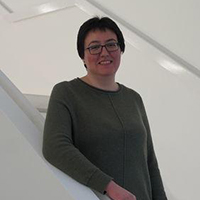
Melike Dönertaş, Leibniz Institute
Dr. Melike Dönertaş is a group leader at the Leibniz Institute on Aging – Fritz Lipmann Institute (FLI) in Jena, Germany, where she leads the AI in Microbiome and Aging Research Group funded by the Carl Zeiss Foundation since 2023. Her studies started at the Middle East Technical University in Molecular Biology and Genetics, advancing to a PhD at the University of Cambridge and European Bioinformatics Institute with an EMBL fellowship. Her PhD explored computational studies on ageing and age-related diseases, focusing on genetics and drug repurposing. Dr. Dönertaş has been an active contributor to the global computational biology community through her involvement with the International Society for Computational Biology (ISCB). She chaired regional student groups across Europe, led the ISCB global student council, and now chairs the junior PIs, fostering collaboration and mentorship in the field. Her postdoctoral research at the Max Planck Institute for Biology of Aging focused on the role of microbiome in ageing, supported by the Collaborative Research Center on Predictability in Evolution (CRC1310). Later, having been awarded EMBO and MSCA postdoctoral fellowships, Dr. Dönertaş moved to the Leibniz Institute on Aging (FLI) in Jena to further integrate information theory, network biology, and machine learning to elucidate age-related changes in the microbiome. She continues at the same institute as a group leader, where they focus on computational biology and AI applications in understanding microbiome and aging dynamics, using omic datasets to quantify and intervene in functional decline during ageing.
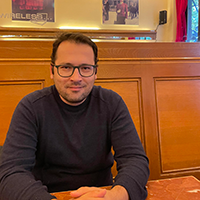
Ruçhan Karaman, Genomize
Dr. Ruçhan Karaman earned his undergraduate degrees in Molecular Biology and Genetics as well as Chemistry from Boğaziçi University, where he also completed his master’s degree in Molecular Biology and Genetics. He pursued his PhD in Biomedical Sciences at KU Leuven, Belgium, conducting research at the VIB-Center for Cancer Biology with a focus on CRISPR-based target identification on liver cancers. During his career, Dr. Karaman has worked at prestigious institutions, including Harvard University and UT Southwestern Medical School, contributing to innovative studies in gene therapy and cancer biology.
Currently, Dr. Karaman serves as the Director of Growth Strategy at Genomize, where he leads the company’s global expansion efforts, particularly in the MENA and ASEAN regions.
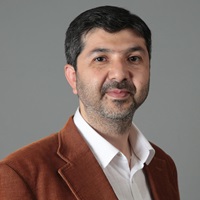
Ali Çakmak, Istanbul Technical University
Ali Cakmak received his B.Sc. degree in 2003 from the Computer Engineering Department at Bilkent University, and his Ph.D. degree in 2008 from the Electrical Engineering and Computer Science Department at Case Western Reserve University. After completing his Ph.D., he worked as a post-doctoral research associate for a year in the same department. Then, he moved to the Silicon Valley, and worked as an R&D engineer as part of the Query Optimization Group at Oracle, Inc. In Fall 2020, he joined Istanbul Technical University as a faculty member in the Department of Computer Engineering. Before joining ITU, he was a faculty member at Istanbul Sehir University in the Department of Computer Science. His research interests include bioinformatics, data mining, data management, databases, query optimization, and data science.
Call for Abstracts
Abstract Submission
For abstract submission, you must be registered in the Microsoft CMT system. After logging into the system, submit your abstract by using the "New Submission" link in the top menu on the page.
Submission system link: Click here
Abstract Book: Click here
Themes and topics
If you think that your recent work is relevant to HIBIT 2024, we cordially invite you to submit an abstract of less than 2000 characters for an oral and/or poster presentation until 15th November 2024.
Typical topics of interest include, but are not limited to:
How to Prepare an Abstract
Contributors who are eager to present their work at HIBIT 2023 as a poster presentation are encouraged to submit an abstract through the submission system on the conference website. All abstracts will be reviewed by the scientific committee. Selected authors to present will be informed.
All of the selected abstracts will be printed in the conference abstract book and assigned to a video conference room during the poster session.
Poster Preparation Information
Digital Format: Posters will be displayed on digital screens. Therefore, all visuals included must be of high resolution (600 DPI or higher) to ensure clarity.
Screen Dimensions: Please ensure that your poster is prepared to fit 42-inch screens in a 16:9 format, with dimensions of 93 cm x 52 cm.
Time
Event
Speaker
Title
Day 1 - December 18, 2024, Wednesday
13:00
Welcome & Coffee
13:30
Workshop 1
Faruk Üstünel, Bezmialem University
High-Performance Computing (HPC) Systems
13:50
Workshop 2 (online)
Emrah Akkoyun, TUBITAK
Efficient and Scalable Data Analysis on HPC: Harnessing Snakemake and Conda for Reproducibility
14:10
Workshop 3
Cahit Burduroğlu, Middle East Technical University
Accessing TRUBA and creating a workflow
14:30
Workshop 4
Kübra Narcı, The German Human Genome-Phenome Archive
Standardizing and harmonizing NGS analysis workflows
17:00
Workshop 5
Hatice Kübra Kibar, Massive Bioinformatics
Massive Analyzer and Mini Analyzer for Genetic Data Analysis
17:20
Workshop 6
Tolga Aslan, Genomize Inc
Use of Secondary and Tertiary Analysis Products in Clinical Genomics, A Use Case With Genomize-SEQ Platform
17:40
Workshop 7
Can Koşukcu, Qiagen
IPA: Ingenuity Pathway Analysis, Interpreting RNA-Seq Results: The secrets to pathway analysis
18:00
Closure
Day 2 - December 19, 2024, Thursday
9:00
Opening Speech
Rümeyza Kazancıoğlu (Rector), Bezmialem Vakıf University
9:05
Who we are?
Mehmet Ziya Doymaz (BILSAB Director), Bezmialem Vakıf University
9:10
HIBIT2024 Welcome Speech
Onur Emre Onat (Chair), Bezmialem University
Session 1 - Human Genetics
Moderetors: Onur Emre Onat & Asif M. Khan
9:20
Keynote Talk 1
Yuval Itan, Icahn School of Medicine at Mount Sinai
Novel Machine Learning Approaches for Predicting Functional Consequences of Human Genetic Variants
10:10
Invited Talk 1
Gülşah Merve Kılınç, Hacettepe Üniversitesi
Complex trait evolution in the light of palaeogenomics: Computational approaches for reconstructing the health in past
10:40
Coffee Break
Session 2 - Artificial Inteligence for Health Informatics
Moderetors: Günseli Bayram Akçapınar & Tunca Doğan
11:00
Keynote Talk 2
Altuna Akalın, Max Delbrück Center
How AI Will Reshape Life Sciences Research: Examples and Demos from the Frontlines
11:50
Selected Talk 1
Atabey Ünlü, Hacettepe University
Autoregressive Design of Target-Centric Drug Candidate Molecules with Chemical and Protein Language Models
12:05
Selected Talk 2
Melih Yiğit, Middle East Technical University & Hacettepe University
Flowdrug: Target-Specific Drug Candidate Molecule Generation with Latent Flow Matching Models
12:20
Selected Talk 3
Eyyub Unlu, Wellcome Sanger Institute
Network-Based Heterogeneity Clustering in Primary Open-Angle Glaucoma Patients Reveals Ancestry-Specific Gene Clusters with Known and Novel Genes
12:35
Lunch Break
Session 3 - Multiomics Approaches
Moderators: Gülşah Merve Kılınç & Arda Çetinkaya
14:00
Invited Talk 2
Melike Dönertaş, Leibniz Institute
Towards a Senescent Cell Atlas Using Machine Learning Classification
14:30
Selected Talk 4
Gamze Maden Müftüoğlu, İstanbul Technical University
Detailed Evaluation of Structural Variant Detection Algorithms Through a Diverse Set of Benchmark Datasets
14:45
Selected Talk 5
Yunus Emre Cebeci, İstanbul Technical University
Efficient Combination of Replicates for Better Somatic Variant Detection in WES
15:00
Selected Talk 6
Abdullah Emul, İstanbul Technical University
VCF Observer: A User-friendly Software Tool for Preliminary VCF File Analysis and Comparison
15:15
Poster Session & Coffee
Session 4 - Drug Design and Development
Moderators: A.Matteen Rafiqi & Şükrü Anıl Doğan
16:30
Invited Talk 3
Seref Gül, Bezmialem University
Targeting Circadian Clock Components for Therapeutic Advances
17:00
Selected Talk 6
Elif Çevrim, Hacettepe University
Leveraging Hypergraph Neural Networks for Drug-Target Interaction Prediction
17:15
Selected Talk 7
Emre Taha Çevik, Gebze Technical University
Development of a Web-Based Tool for Identification of Druggable Pockets in Protein Conformational Ensembles and Ensemble Docking
17:30
Selected Talk 8
Ardan Yılmaz, Middle East Technical University
Enhancing Drug-Target Interaction Prediction via Multimodal Learning and Domain Adaptation
17:45
Selected Talk 9
Ahmet Arıhan Erözden, İstanbul University
MetaPepticon: An Automated Pipeline for Anticancer Peptide Prediction from Shotgun Metagenomics Datasets
18:00
Closure
19:30
Gala Dinner
Day 3 - December 20, 2024, Friday
Session 5 - Genome Research
Moderators: Yeşim Aydın Son & İdil Yet
9:10
Keynote Talk 3
Asif M. Khan, University of Doha for Science and Technology
Bioinformatics Teaching and Training Communities: Addressing Grand Challenges
10:00
Invited Talk 4
Mehmet Baysan, İstanbul Technical University
Clinical NGS Analyses at the Intersection of Information and Genome Technologies
10:30
Selected Talk 10
Mehmet Çay, Acibadem University
LARA: A Novel Multimodal Algorithm Achieves Non-Invasive Multicancer Classification
10:45
Selected Talk 11
Mehmet Arif Ergun, İstanbul Technical University
Turkish Genome Project Data Sharing Portal
11:00
Coffee Break
Session 6 - Protein Structure & Function
Moderators: Şeref Gül & Özge Şensoy
11:30
Invited Talk 5
Günseli Bayram Akçapınar, Acıbadem University
Integrative Computational Approaches Using the Protein Structure-Function Paradigm: Insights into Cerebral Palsy and Obesity
12:00
Selected Talk 12
Erva Ulusoy, Hacettepe University
Automated Protein Function Prediction Using Biological Knowledge Graphs and Heterogeneous Graph Transformers
12:15
Selected Talk 13
Nurdan Kuru, Sabancı University
Phylogeny-Driven Approaches for Variant Effect Prediction and Co-evolution
12:30
Lunch Break
Session 7 - Machine Learning Applications
Moderators: Mehmet Baysan & Arzu Karahan
14:00
Invited Talk 6
Ali Çakmak, Istanbul Technical University
Completing the Loop in Metabolism-Oriented Omics Data Analysis: Data Imputation and Integration Challenges
14:30
Invited Talk 7
Elif Kubat Öktem, Istanbul Medeniyet University
Breast Cancer Research Targetting Programmed Cell Death in the Concept of 3PM Medicine
14:45
Selected Talk 14
Mehmet Burak Koca, Gebze Technical University
Multi-omic Single-cell Data Analysis for Biomarker Identification in Viral Pathogenesis
15:00
Poster Session & Coffee Break
16:30
Invited Talk 8
Ruçhan Karaman, Genomize
How to Combine Genomics, Deep Phenotyping, and AI to Diagnose Patients with Rare Diseases
17:00
Selected Talk 15
Gül Aydemir, Istanbul Technical University
Impact of Computational Parameters on Somatic Variant Calling in Whole Exome Sequencing
17:15
Selected Talk 16
Abdullah Emul, Istanbul Technical University
SABER: Sequencing Analysis Benchmarker–A Comprehensive Tool for Effective Benchmarking
18:00
Award Ceremony & Closing Remark
Onur Emre Onat (HIBIT2024 Chair), Bezmialem Vakıf University
Registration Fee
Faculty
Student - Post Doctoral Position
Early Registration
2700 TL (2295 TL)**
1200 TL (1020 TL)**
Regular
3000 TL (2550 TL)**
1400 TL(1190 TL)**
* International participants Early Registration
100 Euro (85 Euro)**
40 Euro (34 Euro)**
* International participants Regular
110 Euro (93,5 Euro)**
50 Euro (42,5 Euro)**
* Participants that are affiliated with an institute outside of Turkey. No exceptions apply for international participants.
** ISCB Members have 15% discount on all fees.

Bank details:
COMPANY NAME
: ETİKS TURİZM ORGANİZASYON VE PAZARLAMA HİZMETLERİ SAN.TİC.LTD.ŞTİ
BANK NAME
: GARANTI BANKASI
BRANCH OFFICE
: GOZTEPE
TL IBAN NO
: TR 55 0006 2000 2990 0006 2990 65
EURO IBAN NO
: TR07 0006 2000 2990 0009 0940 14
SWIFT NO
: TGBATRISXXX
Register HIBIT'24
Registration Link: Click Here
Chair
Onur Emre ONAT
Bezmialem Vakif University
Organizing Committee
Arda Çetinkaya
Hacettepe University
Arzu Karahan
Middle East Technical University
Ayhan Serkan Şık
Medipol University
Günseli Bayram Akçapınar
Acıbadem University
Mehmet Baysan
Istanbul Technical University
Özge Şensoy
Medipol University
Şeref Gül
Bezmialem University
Tunca Doğan
Hacettepe University
Yesim Aydın Son
Middle East Technical University
Organizing Team - Volunteers
Levise Tenay
Bezmialem University
Vildan Saraç
Bezmialem University
Sumeyye Cimeli
Bezmialem University
Faruk Ustunel
Bezmialem Vakıf University
Ebru Sarsılmaz
Bezmialem Vakıf University
Nisa Çelebi
Bezmialem Vakıf University
Aleyna Çelebi
Bezmialem Vakıf University
Hande Çubukçu
Hacettepe University
Ntefne Chasan Oglou
Istanbul Technical University
Cahit Burduroğlu
Middle East Technical University
Demet İnci
Bezmialem Vakıf University
Organizing Team - Technical
Esra Bekaroğlu
Bezmialem University
Şehlem Ertekin
Bezmialem University
Selma İslamoğlu
Bezmialem University
Hilal Başyeğit
Bezmialem University
Şehnaz Yüceer
Bezmialem University
Mahir Aka
Bezmialem University
Melek Mil
Bezmialem University
Onur Kalyoncu
Bezmialem University
Scientific Comitee and Moderators*
A.Matteen Rafiqi
Bezmialem Vakıf University*
Şükrü Anıl Doğan
Bezmialem Vakıf University*
Şükrü Anıl Doğan
Bezmialem Vakıf University*
İdil Yet
Hacettepe University*
Gülşah Merve Kılınç
Hacettepe University*
Gülşah Merve Kılınç
Hacettepe University*
Ahmet Acar
Middle East Technical University
Arzucan Özgür
Bogazici University
Aslı Suner
Ege University
Atakan Ekiz
Izmir Institute of Technology
Athanasia Pavlopoulou
Izmir Biomedicine and Genome Center
Aybar Acar
Middle East Technical University
Ayhan Yılmaz
Middle East Technical University
Barbaros Yet
Middle East Technical University
Barış Ethem Süzek
Mugla Sitki Kocman University
Burçak Otlu
Middle East Technical University
Burcu Bakir-Gungor
Abdullah Gul University
Çağdaş Son
Middle East Technical University
Carlos Trenada
Heinrich Heine University
Ceren Sucularlı
Hacettepe University
Ceylan Polat
Hacettepe University
Emrah Kırdök
Mersin University
Emre Dayanç
Izmir University of Economics
Emre Keskin
Ankara University
Erdal Cosgun
Microsoft
Eren Yüncü
Middle East Technical University
Ergin Murat Altuner
Kastamonu University
Gökhan Karakülah
Izmir Biomedicine and Genome Center
Gökmen Zararsız
Erciyes University
Handan Melike Dönertaş
Leibniz Institute on Aging - FLI
Hatice Zengin
Hacettepe University
Hilal Kazan
Antalya Bilim University
İnci M. Baytas
Bogazici University
Kaya Bilguvar
Acıbadem University
Muzaffer Arıkan
İstanbul University
Nilüfer Rahmioğlu
University of Oxford
Nurcan Tunçbağ
Koc University
Oktay İ. Kaplan
Abdullah Gul University
Özgül Doğan
Sivas Cumhuriyet University
Özkan Özdemir
Acıbadem University
Özlem Keskin
Koç University
Özlen Konu
Bilkent University
Öznur Taştan
Sabanci University
Remzi Çelebi
Maastricht University
Sait Can Yücebaş
Çanakkale Onsekiz Mart University
Şebnem Eşsiz
Kadir Has University
Serap Erkek Özhan
Izmir Biomedicine and Genome Center
Süreyya Özcan
Middle East Technical University
Tuğba Önal Süzek
Mugla Sitki Kocman University
Tunahan Çakır
Gebze Technical University
Vahap Eldem
İstanbul University
Vilda Purutçuoğlu
Middle East Technical University
Volkan Atalay
Middle East Technical University
Yavuz Oktay
Izmir Biomedicine and Genome Center
Adress
Bezmialem Foundation University, Institute of Life Sciences and Biotechnology,
Erich Frank Conference Hall, Fatih/ISTANBUL/TURKİYE
Contact Details
Email: hibit.conferences@gmail.com
